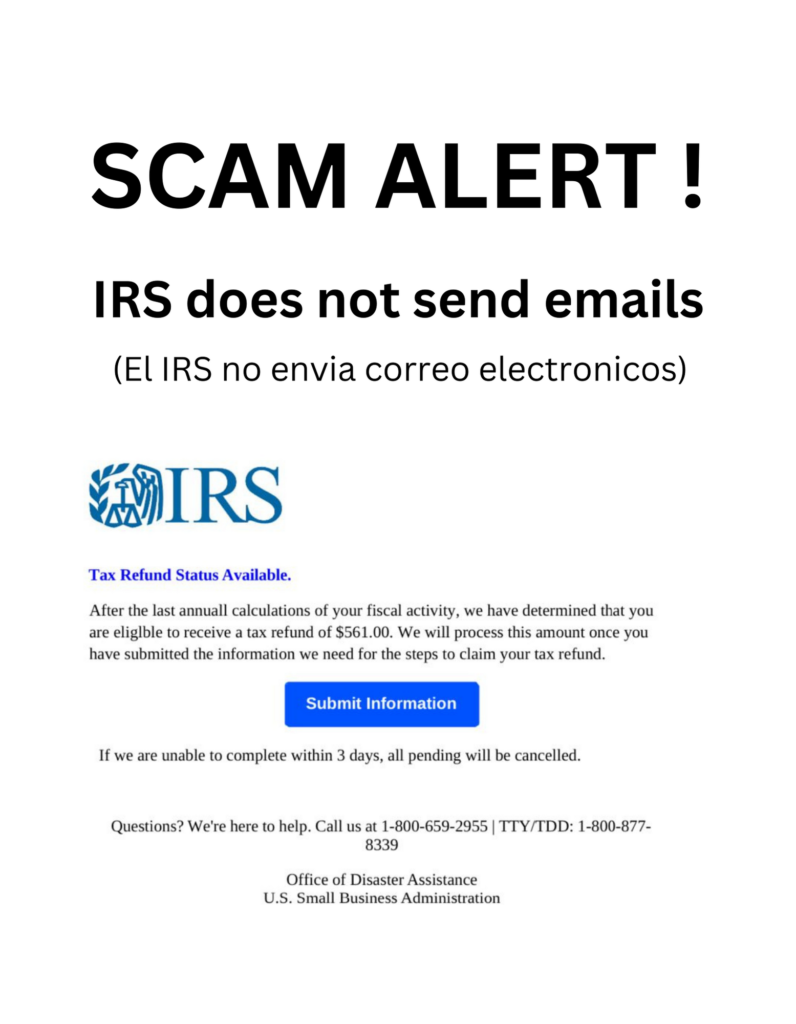Introduction
In recent times, there has been a significant increase in scams where fraudsters pose as the Internal Revenue Service (IRS) to steal personal information and money. This blog post aims to educate you on how these scams work and what you can do to protect yourself.
How the Scam Works

Initial Contact
The scam usually starts with an unsolicited email or phone call claiming to be from the IRS. These communications often look or sound very official, making it hard to distinguish them from legitimate IRS correspondence.
Fake Credentials
The scammer may provide fake badge numbers and may even know the last four digits of your Social Security Number, making them seem even more credible.
Threats
You are told that you owe money to the IRS and must pay immediately. The scammer may threaten you with arrest, deportation, or other legal consequences if you don’t comply.
Urgency
The scammer pressures you to act quickly, often saying that the police will arrest you if you don’t comply immediately.
How to Protect Yourself
Verify
The IRS will never initiate contact with you via email or phone to ask for personal or financial information. Always verify any claims by contacting the IRS directly through their official channels.
Don’t Pay
Never pay a tax bill through wire transfers, gift cards, or other non-standard payment methods. These are red flags for scams.
Report
If you receive a suspicious email, forward it to phishing@irs.gov. You can also report scams to the Federal Trade Commission (FTC).
Consult
If you’re in doubt, consult with a trusted financial advisor or directly with the IRS to verify any claims.
Additional Resources
Conclusion
Scams posing as the IRS are becoming increasingly sophisticated. Always be vigilant and take the necessary steps to protect your personal and financial information. Share this post to help your friends and family stay safe.


